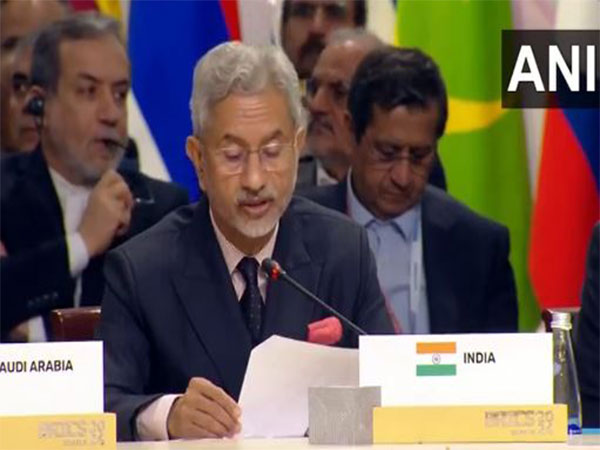S Jaishankar at 16th BRICS Summit: A Strong Call for Global Transformation and Support for the Global South
Kazan, Russia – External Affairs Minister S. Jaishankar delivered a compelling address at the 16th BRICS Summit, emphasizing the evolution of nations emerging from colonial rule and the new multi-polar world that is taking shape. Speaking at the summit, held in a BRICS Plus format, Jaishankar noted the accelerated socio-economic development of these nations and stressed that the BRICS coalition reflects significant shifts in the global order.
"Our world is witnessing a steady diversification of production and consumption," Jaishankar remarked. "Nations that have achieved independence from colonialism are now progressing at an unprecedented pace, showcasing their capabilities and talent." He asserted that BRICS represents the transformative nature of contemporary international relations, underlining the evolving dynamics of power and influence.
Jaishankar outlined several key initiatives to enhance global equity, emphasizing the pivotal role of BRICS in supporting the Global South. He called for the strengthening and expansion of independent platforms and mechanisms to reduce dependence on traditional powers. "BRICS can make a tangible difference," he stated, highlighting the importance of establishing alternative pathways for cooperation and development.
In his address, Jaishankar advocated for reforming the United Nations Security Council, stating the need to update both permanent and non-permanent categories to reflect today’s realities. He also suggested similar reforms for multilateral development banks, addressing their outdated operational frameworks.
The minister highlighted the need for democratizing the global economy by creating more production hubs and establishing resilient supply chains, particularly in light of lessons learned from the COVID-19 pandemic. "Regions around the world rightfully aspire to enhance their production capabilities for essential needs," he noted.
Jaishankar also called attention to correcting infrastructural distortions rooted in colonial history, emphasizing the urgency for enhanced global connectivity and collective efforts toward mutual benefits. He pointed to India’s initiatives like the Unified Payments Interface (UPI) and the Gati Shakti infrastructure project as examples of how countries can innovate and share their experiences for the common good.
In closing, Jaishankar emphasized the importance of collaboration in addressing global challenges, including natural disasters and economic crises, reaffirming India’s commitment as a "First Responder."
The summit, hosted by Russian President Vladimir Putin, brought together leaders from BRICS nations to engage in vital discussions around strengthening multilateralism, countering terrorism, fostering economic growth, and promoting sustainable development. The leaders also welcomed 13 new BRICS partner countries, marking a significant expansion of this influential coalition.
As the BRICS Summit concluded, the resolve for collaboration and support for the Global South resonated profoundly, echoing the sentiments of a world on the brink of a new order.





